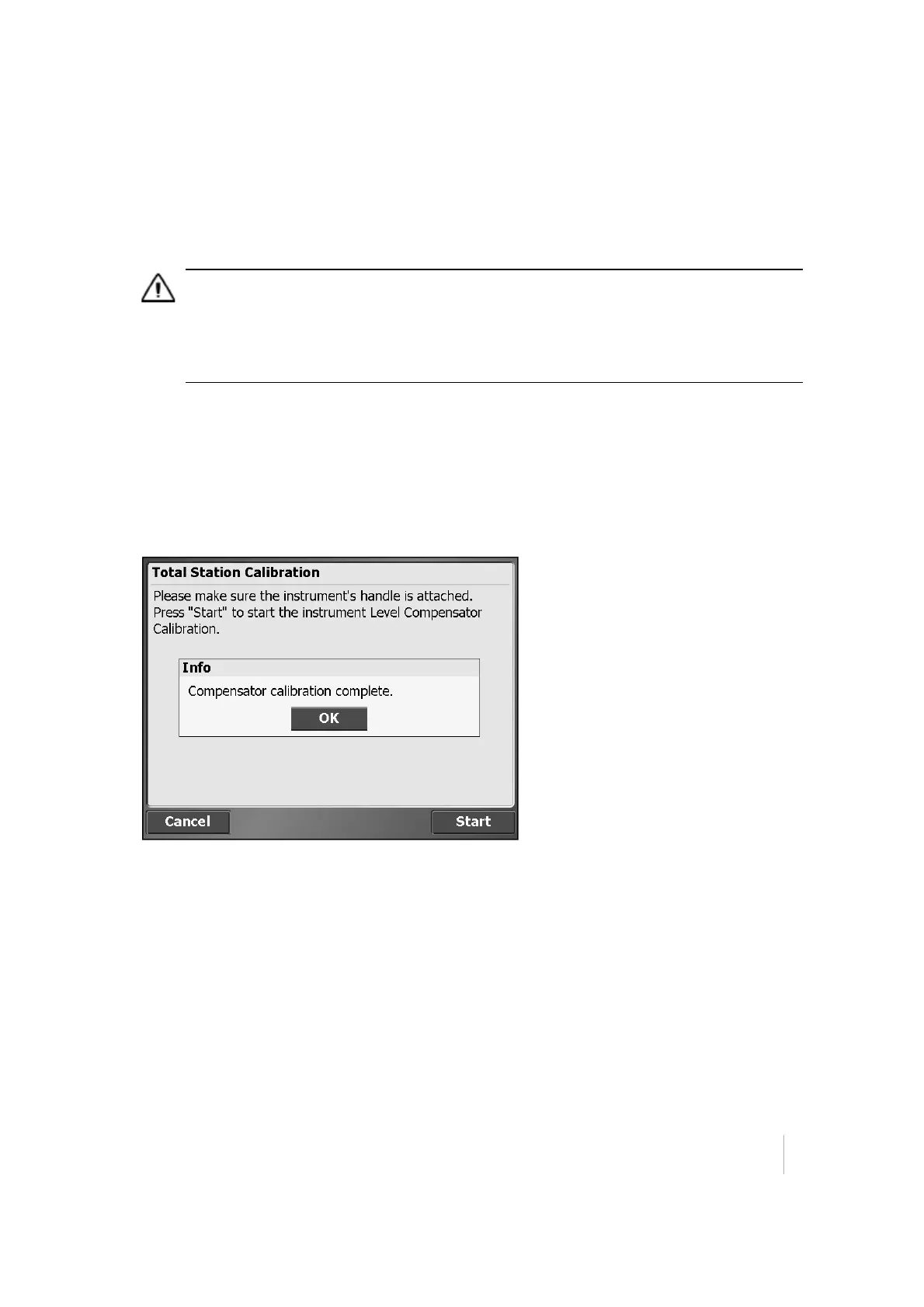12 Advanced Total Station Features
To start the calibration:
1.
From the Home menu, tap Total Station / Total Station Calibration.
Compensator Calibration
CAUTION – You must perform this calibration before the HA VA Collimation and Tracker Collimation. The
compensator does not need to be calibrated every time the other collimations are performed, but if the
Compensator Calibration is performed, you should immediately perform the HA VA Collimation and Tracker
Collimation. Performing the Compensator Calibration negates the validity of the values of the errors found
from previous HA VA Collimations and Tracker Collimations.
The SPS family of motorized total stations is all equipped with a dual-axis compensator. The
compensator is active when the total station is switched on. You should periodically calibrate
the compensator to adjust for any minor changes in the total station caused by normal wear
and tear, as well as shipping or temperature variations. It is extremely important to perform
this calibration when you are working within a very tight tolerance range. You should also
perform this calibration whenever the highest accuracies are needed.
2.
Tap Start to initiate the instrument Level Compensator Calibration:
3.
Tap OK.
HA VA Collimation test
You should perform this test to a target that can be easily bisected with both the horizontal
and vertical cross-hair, placed at a location at least 100 m (328 feet) from the total station, and
at approximately the same elevation as the total station telescope. The target can be any
object including a road sign, window frame, or an adhesive prism target. The test involves
taking a series of HA VA measurements to the target in both instrument faces, to generate a
mean or averaged pointing in face 1 and face 2, from which the difference between face 1 and
face 2 readings can be determined. The difference between the two face readings is known as
the collimation error. In the horizontal axis, the collimation error has little effect on
Trimble SCS900 Site Controller Software User Guide 112
